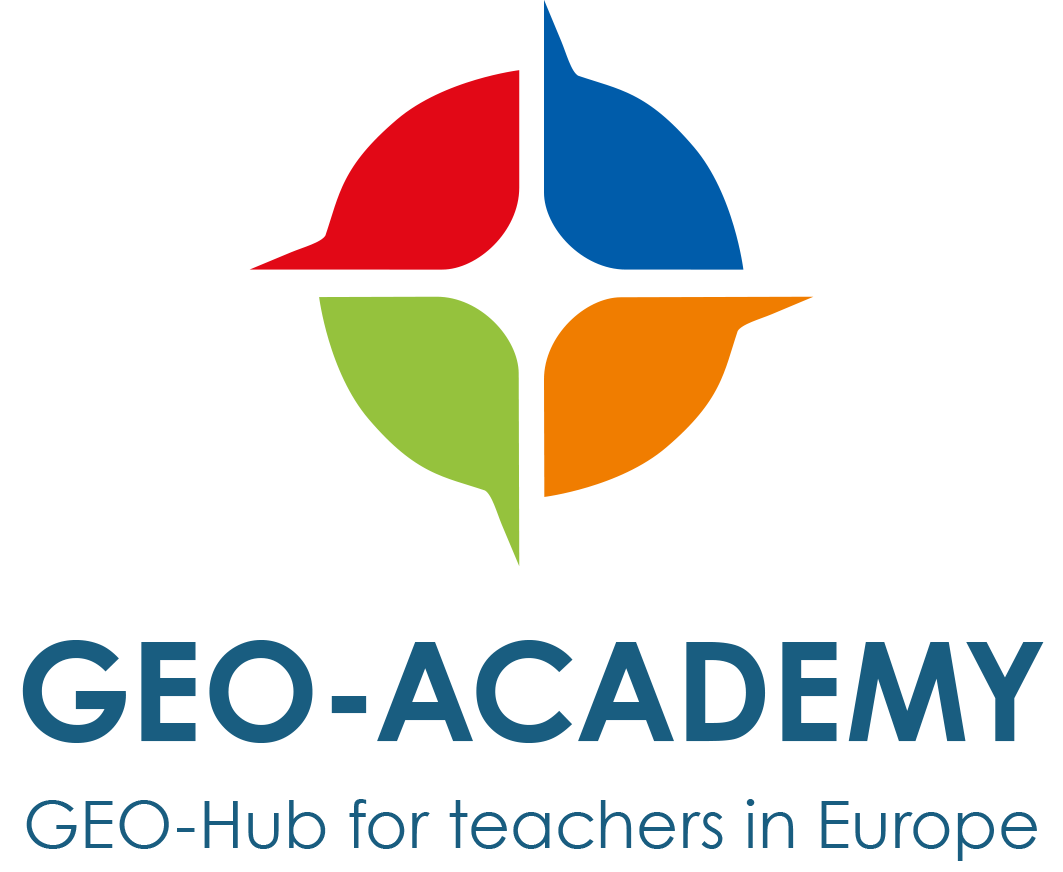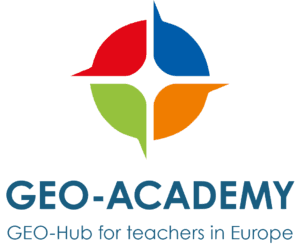The GEO-Academy project aims to establish a unified framework that fosters the educational, digital, environmental, and spatial skills necessary for incubator staff and to serve as a catalyst for effective Sustainable Development Education (SDE) programs both nationally and internationally.The GEO-Academy Summer School features presentations, practical sessions, and workshops that focus on:
- Sharing knowledge and experiences to enhance participants’ understanding of site-specific challenges related to geospatial phenomena, as well as relevant methodologies and technologies.
- Promoting collaboration between teachers, students, innovators, researchers, and stakeholders in science-related fields to tackle real-world challenges and drive innovation.
- Translating scientific and research knowledge into educational practices, making it easily accessible to teachers and educators.
- Equipping teachers with cutting-edge teaching tools and expanding their expertise in phenomena-, project-, and problem-based learning through specialized teacher training and professional development programs.
- Inspiring teachers to present geospatial technologies in an engaging way for students, providing them with concrete pedagogical strategies to involve adolescents in geospatial topics.
- Offering hands-on sessions for developing educational resources and activities, as well as guidance on uploading and sharing educational scenarios, with a focus on secondary and high school curricula
Objectives
The main objectives of the course are:
- Integrating digital skills related to current and emerging geo-technologies into educational practices to enhance both participation and success in STEAM disciplines, as recognized through various studies and models.
- Leveraging the digital opportunities of the ongoing transformation by creating and utilizing innovative GIS, Remote Sensing (RS), and Earth Observation (EO) tools, applications, and modelling schemes.
- Employing Digital Storytelling and supporting materials as pedagogical tools to foster an interdisciplinary teaching and learning environment, empowering teachers across Europe to be skilled, open-minded, and prepared to address Sustainable Development topics and Education for Sustainable Development (ESD).
- Elevating the role of schools as social innovators and active contributors to efforts addressing climate change, positioning schools, teachers, and students as “green and geo innovators,” ambassadors, and environmentally conscious citizens.
- Promoting sustainable professional learning and development for both pre-service and in-service teachers by offering flexible training opportunities that incorporate cutting-edge professional development approaches, supported by teaching materials and guidelines for student instruction.
Methodology
The GEO-Academy Winter School is designed to be highly engaging, creative, and interactive. Participating teachers will work as individuals and in small groups. Thus, they will be able to collaborate with teachers from other countries, discuss ideas, and exchange experiences to create lesson plans and group activities which will encompass all the features of successful inter-disciplinary science activities.
The course will last for 5 days, consisting of a total of 29 hours of workshop-based training, such as presentations followed by hands-on sessions (12 hours of lectures and demonstrations, 17 hours of hands-on workshops). The lectures and the demonstrations of the training courses will be held in an auditorium equipped with a data projector and a laptop,we kindly ask each participant to bring their laptops will have direct access to a laptop with an internet connection and will carry out planned exercises.
One important aspect of the training activities is the collected feedback and the common discussion among participants. We will provide a platform to exchange ideas and talk in detail about the requirements concerning various aspects of the tools shown to facilitate their further development, maximize their efficiency, and enhance their adaptation potential.



Thank you for all the insights and content I have found here.
Thank you from the bottom of my heart
Chiara